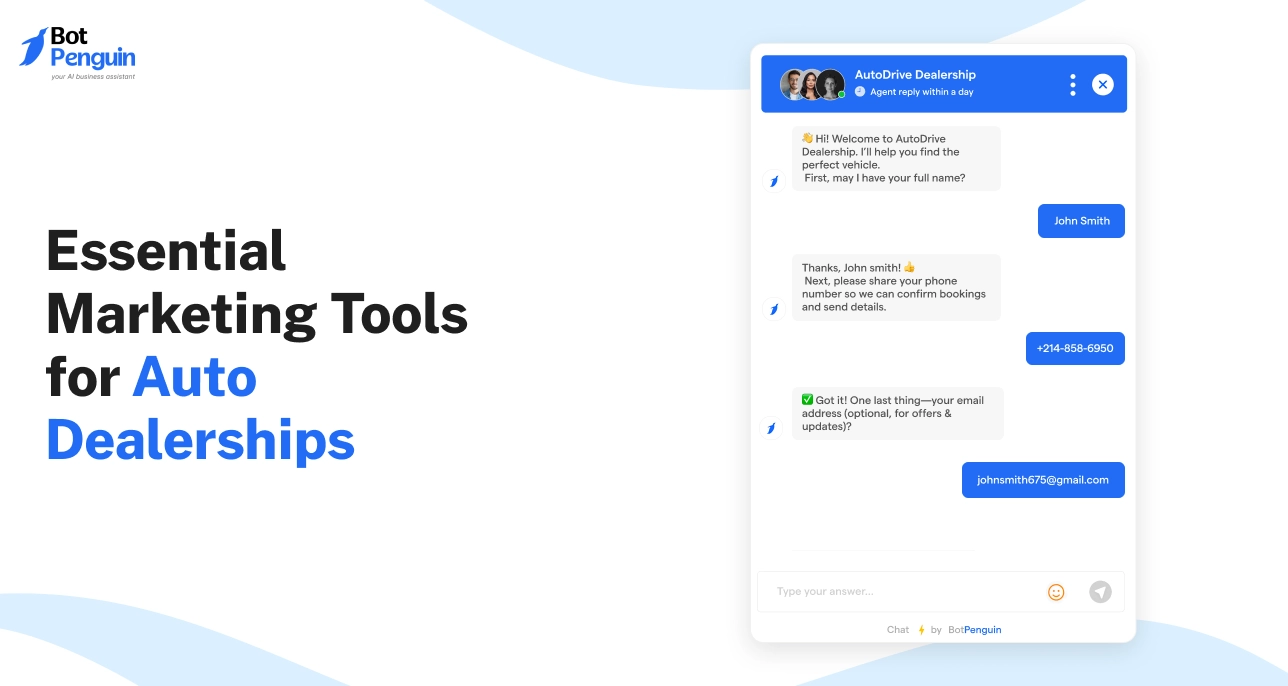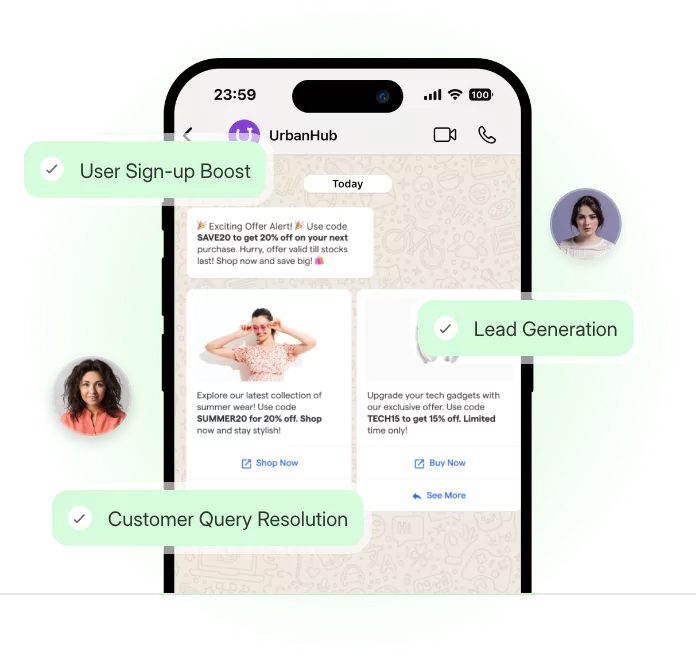Introduction
Most dealerships lose sales long before a customer even talks to them.
Slow follow-ups, poor targeting, and outdated processes drive buyers away.
In 2025, the right marketing tools for auto dealerships aren’t just helpful — they’re essential for staying competitive. They shape how you capture leads, manage relationships, and close deals.
This guide covers 10 key tool categories every dealership should use.
You’ll discover the best options in each, what they do, and how they help you generate more leads, improve customer experiences, and boost sales — all while running your dealership more efficiently.
Why Marketing Tools for Auto Dealerships Matter in 2025
Car buying isn’t what it was even five years ago.
More buyers now start — and sometimes finish — their shopping journey before setting foot on a lot.
Competition has intensified, with local dealerships vying against national chains and online-only sellers. At the same time, customer expectations have risen. They want tailored offers, instant answers, and a smooth process from inquiry to purchase.
Marketing tools for auto dealerships bridge this gap by streamlining outreach, automating tasks, and delivering the experience modern buyers demand.
Common Dealership Challenges Without Tools
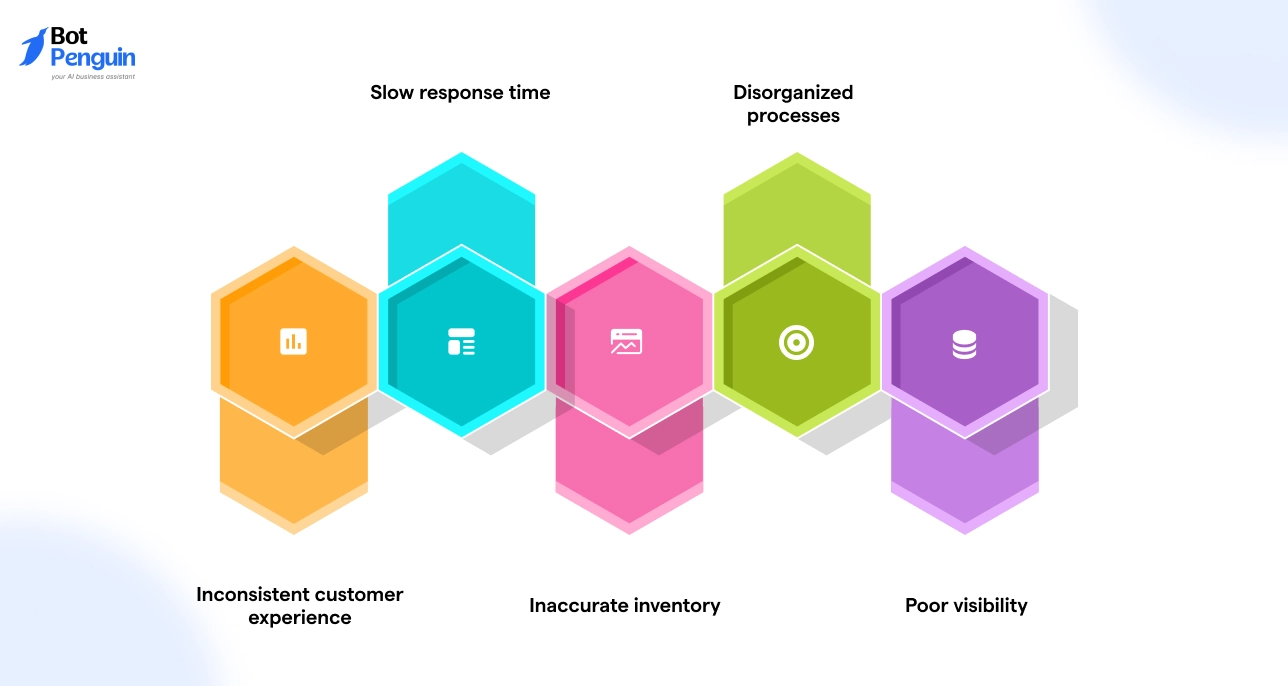
Running a dealership today is far more complex than simply selling cars.
From the moment a potential customer hears about your business to the time they drive off the lot, there are dozens of touchpoints that can make or break a sale. Without the right systems, these touchpoints often fall apart.
Leads may get lost because they’re handled through scattered notes, emails, and memory. Pricing and inventory updates can be delayed, making it hard to keep listings accurate. Customer conversations might happen in different channels with no central record, leading to confusion and missed opportunities.
Even routine tasks like scheduling test drives or managing paperwork can pile up, slowing operations.
Marketing, sales, service, and financing — without a structured approach, each department works in its own bubble.
This creates inefficiencies that not only frustrate the team but also leave customers feeling undervalued.
Key issues without tools:
- Inconsistent customer experience across different departments.
- Slow response times that drive buyers to competitors.
- Outdated or inaccurate inventory harming trust.
- Disorganized processes that waste time and money.
- Poor visibility into performance and profitability.
How Marketing Tools Address These Challenges
A dealership’s success depends on how well its processes work together — not just within a single department, but across the entire operation.
Strong systems help create that alignment.
With a structured workflow, leads are tracked from first contact to final sale, regardless of whether they come from in-person visits, calls, ads, or events. Inventory updates happen in real time, so buyers see accurate information whether they’re on the lot or browsing online.
Communication between sales, marketing, service, and finance becomes seamless, reducing delays and confusion.
It also becomes easier to spot trends — like which promotions bring in serious buyers or which vehicles sell fastest — allowing managers to make smarter decisions.
Overall, it shifts the dealership from constantly reacting to problems to running proactively and strategically.
Key advantages with tools:
- Unified customer experience by connecting all departments.
- Faster lead follow-up to prevent losing potential buyers.
- Real-time inventory accuracy to build buyer trust.
- Organized workflows that reduce wasted time and errors.
- Clear performance insights for better strategic decisions.
Running a dealership without the right systems slows every part of the journey. Efficiency, consistency, and customer trust all suffer.
The good news? There are practical solutions to smooth operations, strengthen buyer relationships, and drive more sales.
Knowing what’s out there — and how it fits your workflow — is the key to staying ahead.
Essential Marketing Tools for Auto Dealerships in 2025: Categories and Top Picks
In 2025, a range of marketing tools for auto dealerships can help you build a stronger presence, capture leads faster, and close more deals.
Below, we’ll break down the main categories, highlight trusted options, and show how each fits into your sales and marketing flow.
Website Builders and Digital Presence Tools
Your website is often a buyer’s first stop, whether they’re browsing inventory or checking dealership reviews. A professional, easy-to-navigate site can make the difference between a lead staying or clicking away.
These tools help dealerships create a credible, mobile-friendly digital presence without unnecessary complexity.
1. Dealer.com
Dealer.com offers integrated marketing solutions tailored to dealerships, combining web design with inventory integration, advertising, and SEO services.
Its platform emphasizes a consistent brand presence, helping dealerships deliver a unified customer experience across digital channels and on-site visits.
Key Features:
- Custom dealership templates tailored to auto sales
- SEO optimization to boost local search ranking
- Responsive design for smooth browsing on any device
Benefits: Builds trust with shoppers by presenting a polished brand image. Integrated SEO helps your listings appear when buyers search for vehicles in your area.
Use Case: Fits seamlessly into a dealership’s workflow by combining website design, inventory display, lead forms, and marketing analytics in one platform.
For example, when you update a vehicle listing in your inventory system, the change reflects instantly on your site, saving staff from manual updates and keeping buyers informed in real time.
2. Wix for Auto Dealers
Wix for Auto Dealers adapts the platform’s flexibility for automotive needs, enabling quick setup of visually appealing sites.
Built-in apps support appointment booking, lead forms, and galleries, making it easy for smaller dealerships to create a competitive online presence.
Key Features:
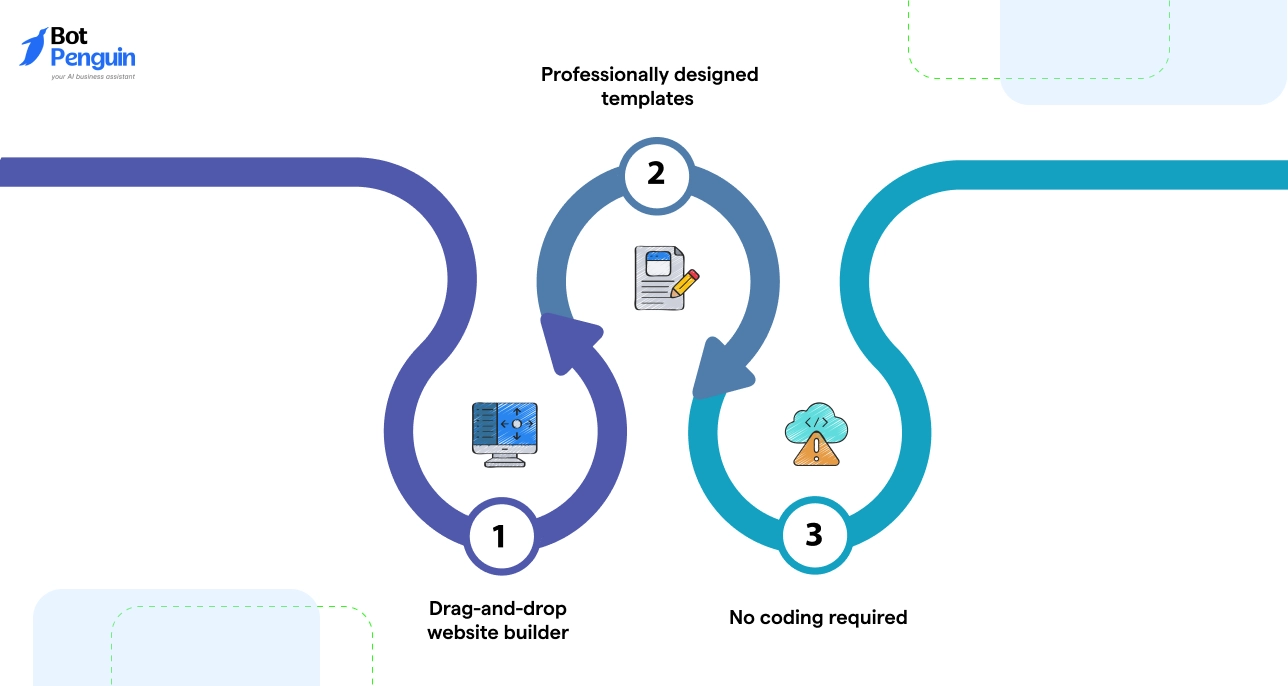
- Drag-and-drop website builder
- Professionally designed templates for vehicle showcases
- No coding required
Benefits: Low cost and easy to maintain. Updates can be made in minutes without relying on a developer.
Use Case: Ideal for smaller dealerships or those just starting out.
A sales manager could add new inventory photos after closing a deal or post weekend promotions instantly, ensuring the website always reflects what’s available on the lot.
This flexibility means you can keep your online presence fresh without pulling resources from other critical sales tasks.
A strong digital presence sets the tone for every interaction that follows.
By investing in a website that’s both functional and visually appealing, dealerships can start building trust before the first handshake.
Automation and Chatbot Tools
Quick responses can be the difference between capturing a lead and losing it to a competitor.
Automation and chatbot tools give dealerships the ability to respond instantly, qualify leads, and handle repetitive tasks without tying up staff resources.
They help maintain engagement even outside business hours, ensuring no opportunity is missed.
3. BotPenguin
.webp)
BotPenguin specializes in no-code AI chatbot creation with industry-specific customization, allowing dealerships to deploy conversational agents for FAQs, lead qualification, and service scheduling.
Its AI learns from interactions, improving relevance and customer engagement over time without any technical involvement.
Key Features:
- Customizable chatbots for dealership needs
- Automated lead qualification
- 24/7 customer support capabilities
Benefits: Keeps conversations going round-the-clock, answers common questions instantly, and frees your team from handling repetitive inquiries.
Use Case: Fits naturally into a dealership’s sales process by greeting visitors on the website or messaging platform the moment they arrive.
For example, when someone lands on your site after hours, BotPenguin can ask what kind of vehicle they’re looking for, suggest relevant listings, and schedule a test drive — all before your sales team logs in the next morning.
4. ActiveCampaign
ActiveCampaign combines marketing automation with CRM capabilities, enabling dealerships to manage complex customer journeys.
Advanced segmentation and behavior-based triggers ensure messages feel timely and personal, making follow-ups more impactful and reducing manual coordination between sales and marketing teams.
Key Features:
- End-to-end marketing automation
- Built-in CRM integration
- Personalized, behavior-based messaging
Benefits: Streamlines lead nurturing, ensures timely follow-ups, and keeps communication consistent.
Use Case: Works well for dealerships managing multiple lead sources.
For instance, when a prospect fills out a contact form, ActiveCampaign can automatically send them an email with relevant vehicle options, trigger a reminder for the sales rep to call within 24 hours, and update the CRM record — all without manual intervention.
This creates a smooth, predictable follow-up process that keeps leads engaged until they’re ready to buy.
Fast, consistent responses keep buyers engaged and prevent leads from slipping away.
By integrating automation and chatbots early in the process, dealerships can maintain momentum from the first click to the final handshake.
Digital Advertising Platforms
When it comes to reaching car buyers actively searching or browsing, paid advertising delivers speed and precision. Digital ad platforms allow dealerships to target the right audience, control costs, and track exactly what works.
From search ads to social campaigns, these tools help turn local interest into showroom visits.
5. Google Ads
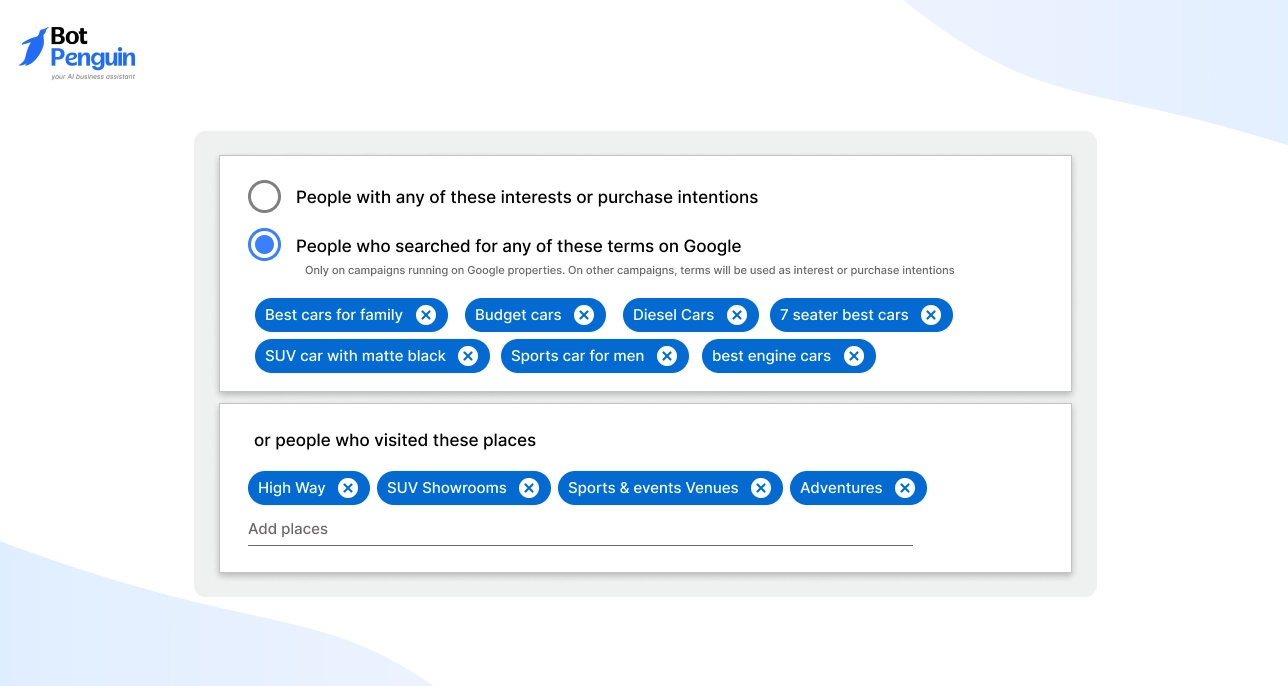
Google Ads empowers dealerships to reach potential buyers at the exact moment they search for relevant vehicles or services.
Advanced keyword targeting, ad extensions, and A/B testing help maximize ad performance and ensure marketing budgets drive measurable sales results.
Key Features:
- Search and display advertising
- Geo-targeting for local reach
- Flexible budget control
Benefits: Captures high-intent buyers at the exact moment they’re searching for a vehicle, while providing detailed performance data to measure ROI.
Use Case: Ideal for dealerships aiming for immediate visibility.
For example, when someone searches “SUVs for sale near me,” a well-placed Google ad can appear at the top of results, link directly to relevant inventory, and bring them one click closer to booking a test drive.
6. Facebook Ads Manager
Facebook Ads Manager provides precise audience targeting across Facebook and Instagram, enabling dealerships to segment by demographics, interests, and behavior.
Built-in analytics help refine campaigns, while creative formats like carousel ads allow for showcasing multiple vehicles in one placement.
Key Features:
- Advanced audience targeting based on interests, behavior, and demographics
- Retargeting capabilities for visitors who’ve already interacted with your brand
- Variety of creative formats, including carousel, video, and lead forms
Benefits: Builds awareness and keeps your dealership top of mind for shoppers scrolling through social media. Encourages engagement with shareable, visually appealing content.
Use Case: Ideal for dealerships seeking to enhance their online presence.
For instance, a targeted campaign can highlight seasonal offers on pickup trucks to people within 20 miles who’ve recently engaged with automotive content, turning casual browsers into warm leads.
Smart ad targeting ensures your message reaches the right buyers at the right time.
By combining search intent with social engagement, dealerships can stay visible where it matters most and keep their brand in front of ready-to-buy customers.
Lead Generation and Customer Acquisition Tools
Before a sale happens, there has to be a lead. The right platforms can bring a steady flow of qualified buyers directly to your dealership.
These tools make it easier to get your inventory in front of the right people and capture their interest quickly, setting the stage for more conversions.
7. AutoTrader Tools
AutoTrader Tools give dealerships direct access to a high-intent marketplace, enhancing visibility among active buyers.
Integrated promotions, buyer messaging, and data analytics make it easier to stand out in competitive listings while maintaining a consistent flow of inbound inquiries.
Key Features:
- Vehicle listings visible to millions of active car buyers
- Targeted promotional options to highlight specific inventory
- Built-in analytics for performance tracking
Benefits: Expands dealership visibility beyond local reach, connects with buyers actively searching for a car, and provides data to refine sales strategies.
Use Case: Perfect for dealerships wanting to boost inbound leads fast.
For example, a dealership listing their certified pre-owned sedans can target them to people browsing in specific regions, generating warm leads without heavy local ad spend.
8. Carsforsale.com
Carsforsale.com simplifies multi-platform advertising, automatically syndicating listings across its partner network.
Its low-cost structure and built-in lead tracking make it a practical choice for dealerships seeking budget-friendly exposure while keeping inventory details up-to-date without repeated manual uploads.
Key Features:
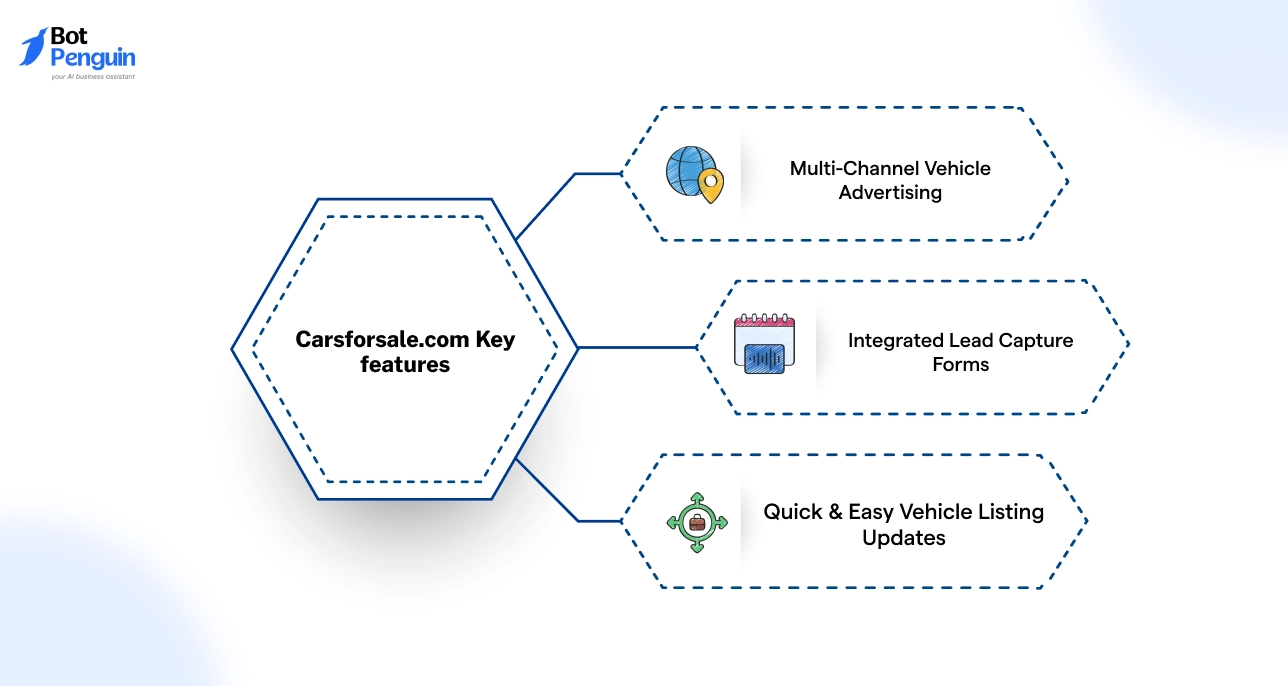
- Multi-channel vehicle advertising
- Integrated lead capture forms for inquiries
- Quick and easy vehicle listing updates
Benefits: Affordable way to generate consistent leads while maintaining updated inventory visibility.
Use Case: A great fit for smaller dealerships aiming for local exposure.
For instance, a used car dealer could list their vehicles here and have them appear on multiple partner sites, driving inquiries from nearby shoppers without juggling several platforms.
Consistent, high-quality leads are the lifeblood of every dealership.
By tapping into platforms with built-in buyer traffic, you can keep your pipeline full and focus more energy on turning prospects into happy customers.
Inventory Marketing and Vehicle Listing Tools
The moment a buyer starts browsing your vehicles, accuracy and presentation make all the difference.
These tools ensure every listing is up-to-date, priced competitively, and visually appealing. They help dealerships move inventory faster by giving shoppers the details they need to make a decision.
9. vAuto
vAuto offers real-time market insights that help dealerships price inventory competitively.
Its tools analyze local supply, demand, and historical sales trends, empowering managers to make data-backed decisions that speed up sales cycles and reduce vehicle aging on the lot.
Key Features:
- Market-based pricing tools for competitive offers
- Real-time inventory performance insights
- Centralized listing management
Benefits: Helps dealerships price vehicles strategically, improves turn rates, and ensures stock is marketed based on current market demand.
Use Case: Ideal for dealerships wanting data-driven inventory marketing.
For example, a dealer with slow-moving SUVs can adjust pricing in line with regional demand, improving the chances of a quick sale without losing margin.
10. AutoTrader Inventory Manager
AutoTrader Inventory Manager centralizes inventory updates, enabling quick edits to descriptions, pricing, and media.
Bulk upload capabilities and mobile access enable dealerships to refresh listings instantly, ensuring offers remain accurate for potential buyers browsing online marketplaces.
Key Features:
- Quick listing updates across multiple channels
- Detailed vehicle descriptions and specifications
- High-quality photo uploads for visual appeal
Benefits: Keeps vehicle listings accurate, fresh, and attractive, which builds buyer trust and interest.
Use Case: Perfect for dealerships with large, frequently changing inventory.
For instance, a multi-location dealer can update their trucks and sedans in minutes, ensuring every potential buyer sees only available stock.
Timely, accurate, and well-presented listings are essential for keeping buyers engaged.
By using inventory tools that combine speed with detail, dealerships can maintain buyer confidence and move vehicles off the lot faster.
CRM Systems and Customer Management
A smooth sales process relies on knowing exactly where each lead stands.
CRM systems keep every interaction, follow-up, and opportunity organized in one place. They help dealerships turn scattered information into a clear sales path, ensuring no potential buyer slips through the cracks.
11. DealerSocket
DealerSocket integrates lead management, desking tools, and customer communications in one CRM platform.
Its analytics reveal sales team performance trends, while automation handles follow-ups, freeing staff to focus on high-value personal interactions that close deals faster.
Key Features:
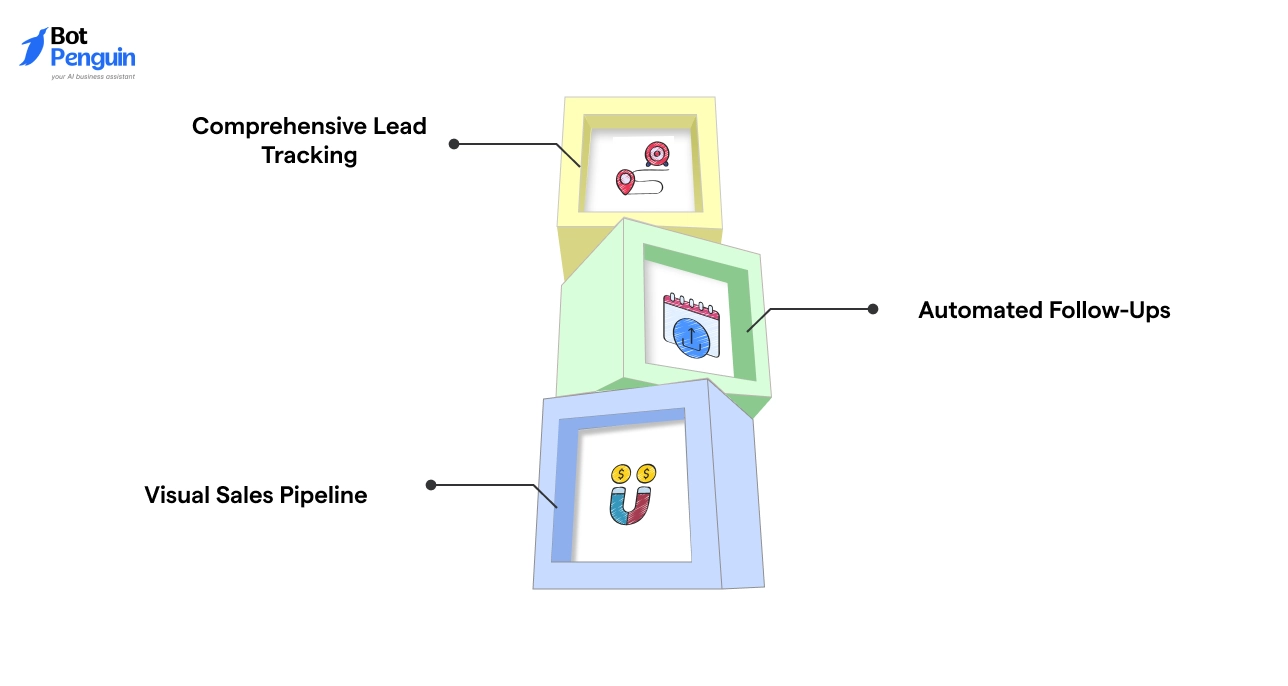
- Comprehensive lead tracking from first contact to sale
- Automated follow-up reminders and messaging
- Visual sales pipeline for better workflow management
Benefits: Streamlines lead management, boosts sales team efficiency, and ensures consistent follow-up for every customer.
Use Case: Perfect for dealerships needing a centralized customer database.
For example, when a salesperson is out, another team member can quickly access the lead’s full history and pick up the conversation without missing a beat.
12. VinSolutions
VinSolutions unites CRM, marketing, and inventory data to provide a 360-degree view of each customer.
AI-powered lead scoring prioritizes sales opportunities, helping teams allocate time to the most promising prospects and track progress from first contact to sale.
Key Features:
- AI-powered lead scoring for prioritizing prospects
- Integrated communication tools (email, text, calls)
- Real-time inventory sync with customer preferences
Benefits: Improves targeting, increases conversion rates, and personalizes the buying experience.
Use Case: Ideal for dealerships using data to drive decisions.
A dealer could focus marketing efforts on buyers showing high engagement signals, increasing the chances of closing faster.
Organized, accessible, and data-driven customer management gives dealerships a clear edge.
With the right CRM, every lead is nurtured efficiently, turning interest into sales without unnecessary delays.
Email and SMS Marketing Tools
Direct communication still works — when it’s timely, relevant, and personal.
Email and SMS campaigns give dealerships a way to reach buyers right where they are, whether it’s in their inbox or on their phone.
This approach keeps the dealership top-of-mind without being intrusive, and when done right, can turn interest into action quickly.
13. Mailchimp
Mailchimp’s automotive-friendly templates and automated campaigns make it easy for dealerships to send consistent, branded communications.
Advanced reporting tracks engagement beyond open rates, showing how emails influence clicks, website visits, and even dealership visits.
Key Features:
- Drag-and-drop email campaign builder for quick setup
- Audience segmentation to target the right customers
- Detailed analytics for tracking engagement and conversions
Benefits: User-friendly platform, affordable pricing, and excellent for nurturing leads over time.
Use Case: Perfect for dealerships focusing on email marketing.
For instance, a dealership can create a segmented list of past SUV buyers and send them early access to a new SUV model launch, increasing engagement from an already interested audience.
14. EZ Texting
EZ Texting streamlines customer communication with bulk and two-way SMS.
Pre-built templates for promotions, service reminders, and event invites save time, while analytics reveal which messages generate responses, helping refine future outreach strategies.
Key Features:
- Bulk SMS sending for wide reach in seconds
- Two-way messaging to engage with customers instantly
- Automation for reminders, promotions, and updates
Benefits: Delivers messages directly to phones with high open rates, making it ideal for time-sensitive offers.
Use Case: Great for timely promotions and reminders.
A dealership could send a same-day text alert about a weekend clearance sale, driving immediate foot traffic from local customers.
Email and SMS marketing tools bridge the gap between interest and action.
By sending the right message at the right time, dealerships can strengthen relationships, prompt quicker decisions, and keep customers engaged throughout their buying journey.
Social Media Management Tools
Social media is often where potential buyers first notice a dealership — and first impressions matter. Consistent posting, quick replies, and engaging content help keep a dealership visible and relevant in a competitive market.
The right management tools make this process organized and efficient, ensuring your social presence works for you even when you’re busy on the lot.
15. Hootsuite
Hootsuite offers a centralized hub for managing multiple social platforms, enabling dealerships to monitor mentions, track trends, and respond to comments in real time.
Its scheduling flexibility supports consistent posting without disrupting daily operations.
Key Features:
- Schedule posts across multiple platforms from one dashboard
- Track engagement metrics in real time
- Team collaboration features for coordinated posting
Benefits: Saves time by centralizing social media tasks and helps maintain a strong, consistent online presence.
Use Case: Ideal for dealerships managing multiple social channels.
For example, a dealer could schedule a week’s worth of posts promoting new arrivals, upcoming sales, and customer testimonials — all while keeping engagement responses in one place.
16. Buffer
Buffer focuses on simplicity, allowing dealerships to plan and post social content without distractions.
Integrated analytics identify the best times to post, while link tracking helps connect engagement metrics to tangible sales outcomes.
Key Features:
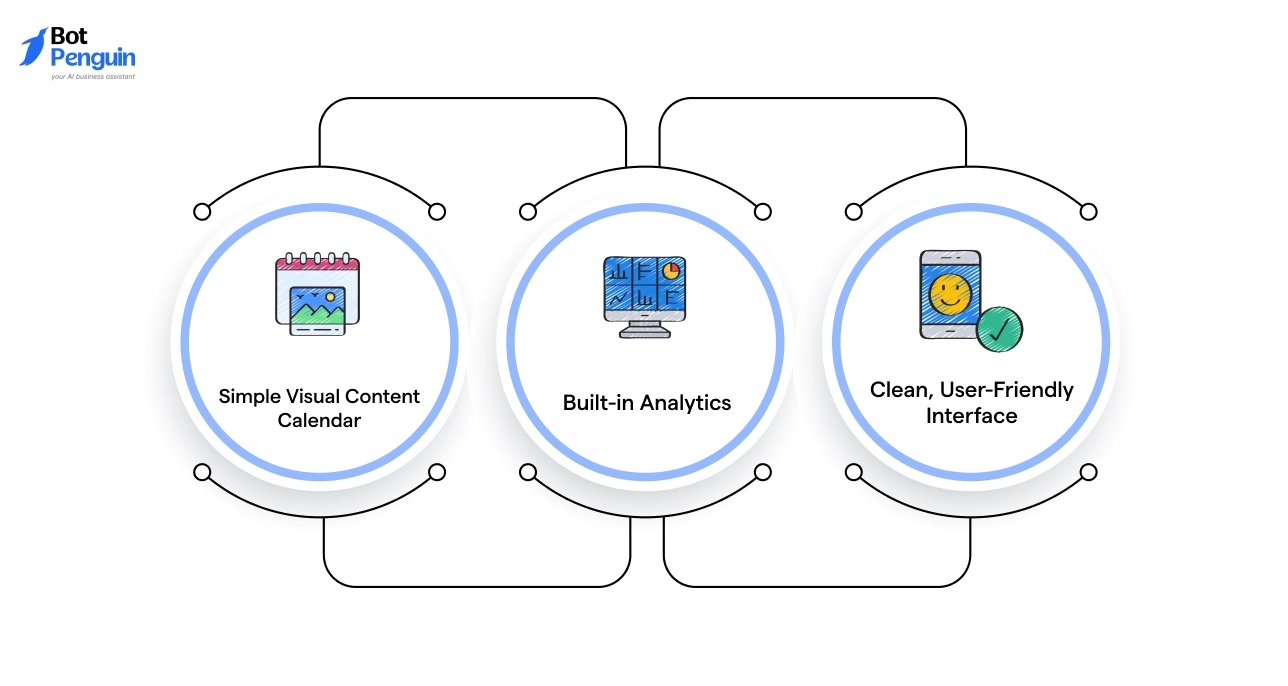
- Simple, visual content calendar for planning posts
- Built-in analytics to measure performance
- Clean, user-friendly interface
Benefits: Streamlines the posting process and helps track audience growth over time.
Use Case: Great for dealerships starting social media marketing.
A small dealership could use Buffer to post daily vehicle highlights on Instagram and Facebook, gradually building a loyal audience without needing a full-time social media manager.
Managing social media manually is time-consuming and inconsistent.
With scheduling and analytics tools, dealerships can keep their brand active, engage customers meaningfully, and track what works — all without it taking over the day.
Reputation and Review Management Tools
In the auto industry, reputation is currency. Buyers often decide where to shop based on ratings and reviews before they ever step onto a lot.
A single unanswered negative review can cost you leads, while a stream of positive, recent feedback can build immediate trust.
Managing this process manually can be overwhelming — especially across multiple platforms — but the right tools make it consistent and effective.
17. Podium
Podium turns everyday customer interactions into opportunities for reviews, payments, and feedback.
Text-based review requests and a unified messaging inbox make it easy to boost online reputation while improving responsiveness to inquiries.
Key Features:
- Sends automated review requests after customer interactions
- Centralized messaging inbox for texts, web chats, and social messages
- Analyzes customer feedback for actionable insights
Benefits: Boosts the volume of positive reviews and ensures fast responses to inquiries.
Use Case: Useful for dealerships focusing on local reputation.
For instance, after a sale, Podium can automatically send a review request via text, making it simple for happy buyers to leave feedback — right when their experience is freshest.
18. Reputation.com
Reputation.com monitors and manages brand perception across multiple review sites, social channels, and search results.
Its sentiment analysis highlights recurring customer concerns, helping dealerships proactively address service gaps before they harm trust.
Key Features:
- Monitors reviews from multiple platforms in one dashboard
- Tracks sentiment trends over time
- Generates performance reports for different locations
Benefits: Makes managing online reputation more organized and improves visibility in search results.
Use Case: Suitable for larger dealerships with multiple locations.
A group could use Reputation.com to track feedback across all branches, identify recurring issues, and take action quickly to protect the brand image.
A strong reputation builds buyer confidence before any sales pitch.
By staying on top of reviews and responding promptly, dealerships can turn satisfied customers into their most effective marketing channel.
Analytics and Reporting Tools
In a dealership, every marketing effort — from ads to emails — costs time and money. Without tracking, it’s impossible to know what’s working and what’s wasting resources.
Analytics tools turn raw data into actionable insights, showing exactly where leads come from, how buyers interact with your platforms, and which strategies drive the most sales.
This clarity allows managers to make decisions based on facts, not guesswork.
19. Google Analytics
Google Analytics delivers deep insights into dealership website performance, including how visitors arrive, what pages they view, and where they drop off.
Enhanced eCommerce tracking can also reveal the impact of online promotions on lead submissions.
Key Features:
- Tracks website traffic sources and user behavior
- Measures conversion rates and key events
- Visualizes user journeys to highlight drop-off points
Benefits: Pinpoints top-performing channels and highlights areas needing improvement, helping dealerships focus budgets where they matter most.
Use Case: Essential for any dealership’s digital marketing.
For example, if test-drive bookings spike after a Facebook ad campaign, Google Analytics confirms the source — so the dealership can double down on that channel.
20. Zoho Analytics
Zoho Analytics merges data from ads, CRM, sales, and inventory systems into one visual dashboard.
Its AI assistant can answer performance questions instantly, making reporting faster and more accessible for dealership managers.
Key Features:
- Creates custom performance reports tailored to dealership needs
- Integrates with CRM, ad platforms, and inventory systems
- Provides visual dashboards for quick performance checks
Benefits: Delivers a comprehensive view of marketing effectiveness by consolidating multiple data sources into one place.
Use Case: Perfect for dealerships seeking deeper insights.
A sales manager could link Zoho Analytics with CRM data and ad spend to see which promotions generate the highest-value customers, not just the most clicks.
Clear data turns marketing from a gamble into a guided strategy.
With the right analytics, dealerships can confidently invest in what works — and cut what doesn’t — to keep growth steady and predictable.
How to Choose the Right Marketing Tools for Your Auto Dealership
With so many marketing solutions available, it’s easy to feel overwhelmed. Besides, the best tools for one dealership might be completely unnecessary for another.
The key is choosing solutions that fit your operation’s size, budget, and growth ambitions — without overcomplicating workflows.
Whether you run a single-lot business or a multi-location network, aligning the right mix of auto dealership marketing tools to your specific needs ensures you’re investing in efficiency, not just features.
Match Tools to Your Dealership’s Specific Needs
Before diving into flashy features, start with a clear picture of your dealership’s structure.
- Small dealerships may benefit more from simple, affordable platforms that handle essential functions without a steep learning curve.
- Large dealerships might require advanced tools with multi-location support and deeper analytics.
For example, a boutique used-car dealer might prioritize easy social media scheduling over advanced AI-driven pricing. At the same time, a multi-location new car network may want complex CRM integrations and cross-team collaboration features.
Always weigh cost against how directly the tool supports your primary sales and marketing goals.
Check Integration with Existing Systems
Even the most potent tool becomes a headache if it doesn’t connect with your current CRM, inventory management software, or ad platforms.
Seamless integration ensures that customer details, leads, and marketing analytics flow automatically across systems. This not only prevents double work but also keeps data accurate.
Imagine running a promotion where leads don’t sync to your CRM — your sales team loses time chasing missing information.
Use Free Trials and Demos Before Committing
A tool might look perfect on paper but feel clunky in daily use. Free trials and demos let you see how the platform fits into your team’s routine.
Have multiple team members test it — a sales rep might notice limitations that a marketing manager wouldn’t.
Watch for how quickly you can complete common tasks like updating listings or scheduling campaigns.
Consider Support and Training Availability
Even intuitive tools require onboarding.
Strong vendor support and accessible training materials can speed up adoption and reduce downtime. Live chat support, step-by-step guides, and video tutorials are invaluable for resolving issues without disrupting daily operations.
For dealerships where staff juggle multiple roles, having quick access to help can be the difference between consistent tool usage and abandonment.
Choosing the right marketing tools isn’t about picking the most popular option — it’s about finding what works best for your team and customers. But even the right tools can fall short if used poorly.
Next, we’ll explore common mistakes dealerships make when putting these solutions into practice.
Common Mistakes to Avoid When Using Marketing Tools
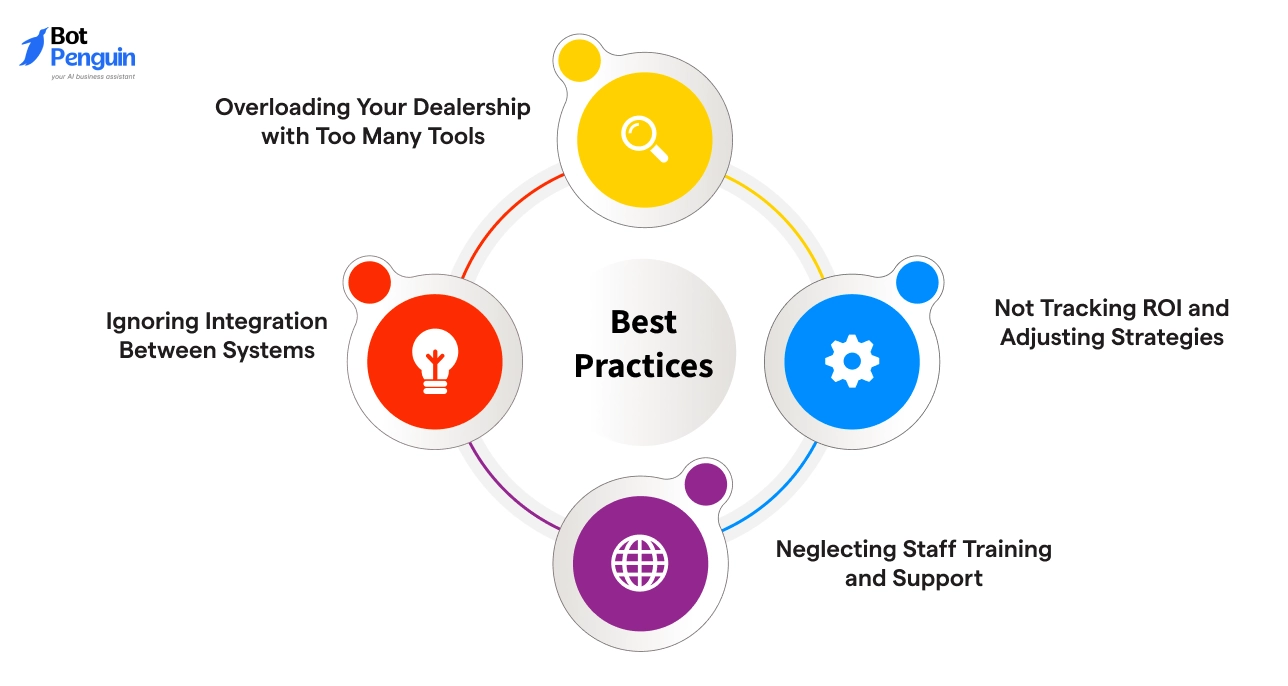
Even with the right auto dealership marketing tools, results often fall short because of how they’re implemented.
Missteps in setup, usage, or follow-up can waste time and budget. By recognizing and avoiding these mistakes, dealerships can keep operations efficient and strategies on track.
Overloading Your Dealership with Too Many Tools
It’s easy to get carried away adding new platforms for every marketing task.
However, an excess of tools creates overlapping features, higher costs, and unnecessary complexity.
A dealership might have separate tools for email, SMS, and social media — each requiring separate logins and processes — when one platform could handle it all.
Ignoring Integration Between Systems
Disconnected tools lead to broken workflows and lost opportunities.
If a lead captured on your website doesn’t automatically appear in your CRM, follow-up might be delayed or missed entirely.
Seamless integration ensures that every touchpoint — from ad click to test drive — is tracked and actionable.
Neglecting Staff Training and Support
A powerful tool is only as effective as the team using it.
Without training, staff may overlook features that could save hours of work.
For example, skipping training on automation could result in manual follow-ups that take three times longer. Vendor support and ongoing refresher sessions help maintain proficiency.
Not Tracking ROI and Adjusting Strategies
Without measuring performance, marketing becomes guesswork.
Tracking ROI reveals which campaigns generate the most leads and which are draining resources. A dealership that doesn’t analyze results may keep running an ad campaign that hasn’t produced a sale in months.
Adjusting based on data maximizes return.
Avoiding these common pitfalls helps ensure your marketing tools work for you, not against you.
With a streamlined approach, your dealership can adapt faster to the market and prepare for the innovations shaping the future of dealership marketing.
Emerging Trends in Auto Dealership Marketing Tools
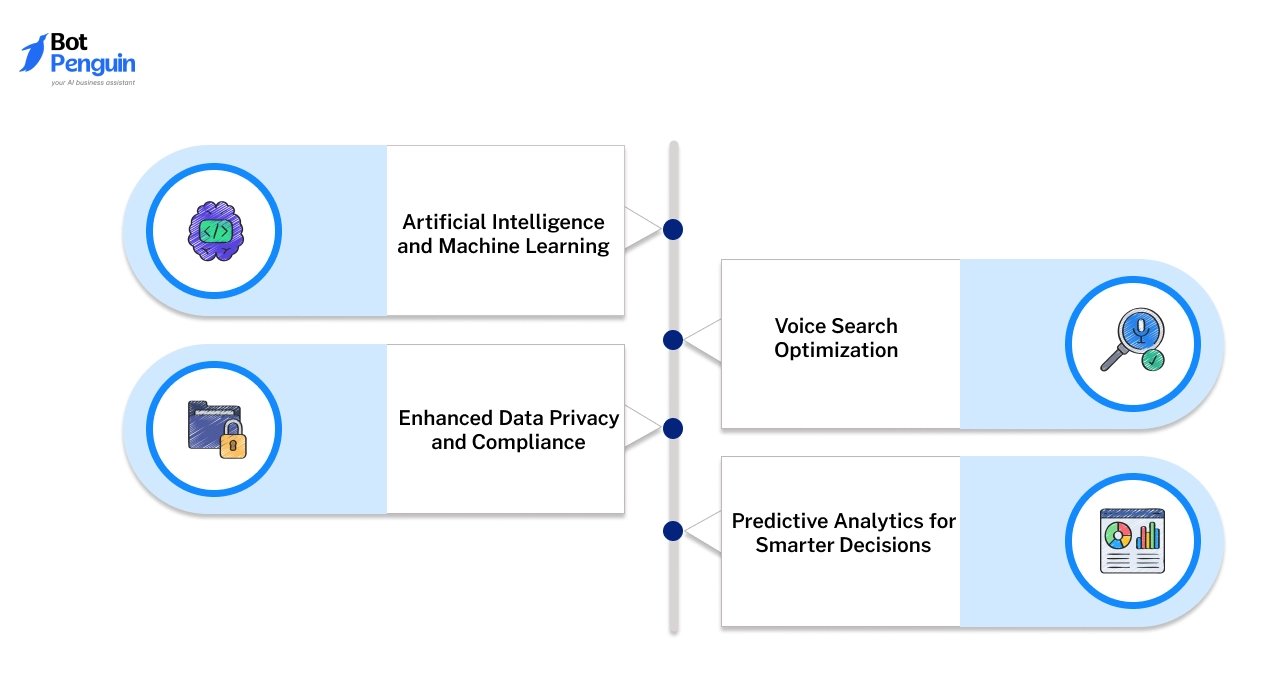
The way marketing tools for auto dealerships work is evolving quickly. What seemed advanced a few years ago is now standard — and new trends are shaping how dealerships connect with buyers.
Staying ahead of these shifts can help your business remain competitive while building trust with today’s more informed customers.
Artificial Intelligence and Machine Learning
AI is moving beyond basic automation into highly personalized engagement.
It can score leads based on their likelihood of making a purchase. It can trigger tailored offers at the right time. Some tools even suggest the best follow-up moment.
Imagine an AI noticing a shopper who keeps checking out a specific truck online. It can instantly send a financing deal for that model, without staff involvement.
This targeted action speeds up sales and boosts conversions.
Voice Search Optimization
More buyers are using Alexa, Siri, or Google Assistant to find cars.
Voice search works differently from typed queries. People use longer, natural phrases like, “Who’s selling certified pre-owned sedans under $20k near me?”
Dealership websites need to be structured for these questions. Doing so can place your listings at the top of voice results.
That means more visibility when buyers are ready to act.
Enhanced Data Privacy and Compliance
Privacy is now a trust factor, not just a legal box to tick.
Many tools offer encrypted communication, consent tracking, and location-based compliance features.
If your dealership works across states with different privacy laws, these tools can adjust automatically. That keeps you compliant while reassuring customers their data is safe.
Predictive Analytics for Smarter Decisions
Predictive analytics turns past data into clear insights.
It can reveal buying patterns, seasonal demand shifts, and local market changes.
For example, spotting a rise in EV interest early lets you prepare inventory and campaigns ahead of the curve. Acting on these signals can give your dealership a competitive edge.
These trends aren’t distant possibilities — they’re already shaping dealership strategies today.
Embracing them early ensures your business stays relevant and competitive, paving the way for smarter, more customer-focused marketing in the years ahead.
Conclusion
From automation and advertising to CRM and analytics, the right marketing tools give auto dealerships a sharper edge. They streamline operations, attract qualified leads, and boost sales potential — all while saving valuable time.
In 2025, success will belong to those who choose tools that fit their goals and workflow. Explore the full range we’ve covered, but pay special attention to solutions that engage buyers instantly.
Tools like BotPenguin can capture interest the moment it appears, nurture leads on autopilot, and free your team to focus on closing deals.
Start exploring today and drive your dealership toward lasting growth!
Frequently Asked Questions (FAQs)
Is it better to invest in one all-in-one tool or multiple specialized tools?
Your choice depends on operations and budget. Smaller dealerships often find an all-in-one platform cost-effective and easier to manage.
Larger dealerships usually benefit from specialized tools for CRM, advertising, and automation to achieve deeper functionality and better results in each marketing area.
How often should I review my marketing tool stack?
Assess your marketing tools at least every quarter. Track performance against goals like leads, conversions, and ROI.
This keeps you ahead of market shifts, prevents wasted spend on underperforming tools, and ensures your dealership is using the most relevant, high-impact solutions available.
Can AI-powered tools replace human sales staff?
AI tools cannot replace the human element in sales. They excel at automating repetitive tasks, scoring leads, and sending instant responses.
This frees sales staff to focus on personal interactions, relationship building, and closing deals—tasks where empathy and negotiation still outperform technology.
How do I avoid overwhelming my team with new tools?
Introduce tools gradually, starting with the most critical. Provide hands-on training and clear use cases. Ensure the tools integrate with existing systems to reduce friction.
This approach enables your team to adopt new technology smoothly, without disrupting daily operations or causing confusion.
Do chatbots really help sell cars?
Yes, when implemented strategically. Chatbots like BotPenguin engage visitors instantly, answer common questions, qualify leads, and schedule test drives 24/7.
They ensure prospects stay connected with your dealership instead of drifting to competitors, significantly improving lead capture rates and early-stage sales engagement.
How important is mobile optimization in 2025 for dealership marketing tools?
Extremely important. Car buyers increasingly browse inventory, compare prices, and start purchase inquiries via smartphones.
Marketing tools must provide a seamless, mobile-friendly interface for both customers and your sales team. Poor mobile experiences can cause lost leads before they ever contact your dealership.
